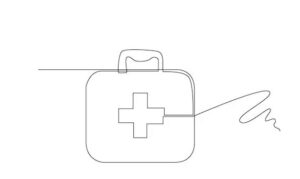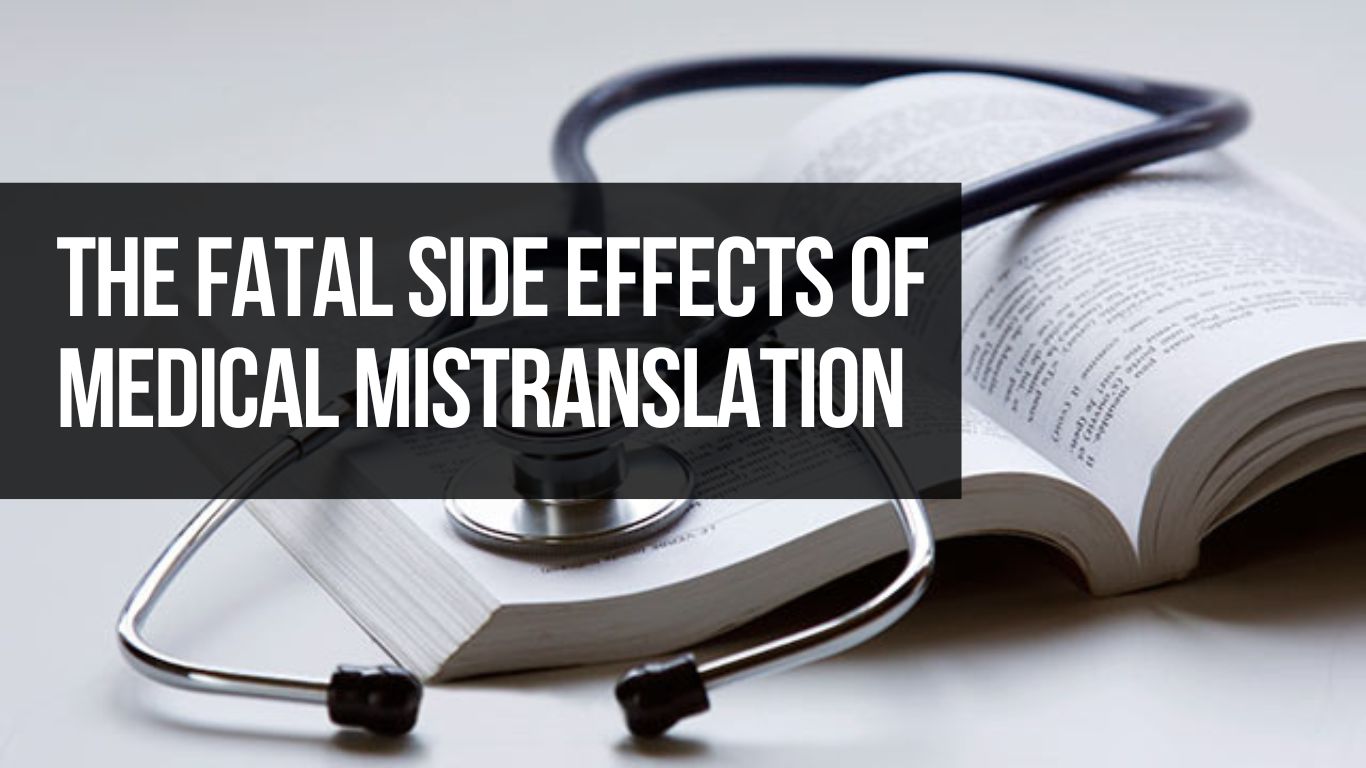Effective medical translation is a critical component of modern healthcare. It can save lives, ensure better outcomes, and improve patient satisfaction. However, when medical translation is inaccurate, the consequences can be catastrophic. Language barriers between healthcare providers and patients with limited English proficiency (LEP) create significant risks for miscommunication, which can lead to serious medical errors. The following discussion will explore the high stakes of accurate medical translation, illustrated by real-life examples of tragic mistranslations, and emphasize why investing in professional medical translation is non-negotiable.
Tragic Case Studies
 One of the most infamous cases of medical mistranslation involves Willie Ramirez, an 18-year-old athlete who was admitted to a Florida hospital in 1980. Willie had fallen comatose after a baseball injury, and his family, Spanish speakers, repeatedly described his condition using the word “intoxicado.” In Spanish, this term often refers to being poisoned or feeling nauseous, but hospital staff assumed it meant intoxicated by drugs or alcohol. As a result, doctors misdiagnosed him with a drug overdose and spent days treating him for a condition he didn’t have. The real culprit was a brain hemorrhage, and by the time this was discovered, it was too late to reverse the damage. Willie survived but was left permanently quadriplegic. This heartbreaking case demonstrates how a single mistranslation can irrevocably alter a life.
One of the most infamous cases of medical mistranslation involves Willie Ramirez, an 18-year-old athlete who was admitted to a Florida hospital in 1980. Willie had fallen comatose after a baseball injury, and his family, Spanish speakers, repeatedly described his condition using the word “intoxicado.” In Spanish, this term often refers to being poisoned or feeling nauseous, but hospital staff assumed it meant intoxicated by drugs or alcohol. As a result, doctors misdiagnosed him with a drug overdose and spent days treating him for a condition he didn’t have. The real culprit was a brain hemorrhage, and by the time this was discovered, it was too late to reverse the damage. Willie survived but was left permanently quadriplegic. This heartbreaking case demonstrates how a single mistranslation can irrevocably alter a life.
The High Stakes of Accurate Medical Translation
The cases of Willie Ramirez and Maria highlight a troubling reality: mistranslation in healthcare can have dire consequences. Even a single word or phrase misunderstood or mistranslated can derail treatment plans, delay critical care, or result in unnecessary procedures. In the high-pressure environment of healthcare, where split-second decisions can mean the difference between life and death, the importance of precise medical translation cannot be overstated.
Accurate medical translation is essential in:
- Ensuring Accurate Diagnoses: Miscommunication about symptoms or medical history can lead to misdiagnoses, delayed treatment, or incorrect interventions. Professional medical translation ensures that patients’ descriptions of their symptoms are accurately conveyed, enabling healthcare providers to make informed decisions.
- Preventing Medication Errors: Incorrectly translated instructions about dosages, side effects, or contraindications can lead to dangerous medication errors. Clear communication through medical translation reduces this risk.
- Avoiding Surgical Mistakes: Mistranslations of patient names, medical histories, or procedural details can result in catastrophic surgical errors. Accurate translation safeguards against such errors, ensuring that every patient receives the right treatment.
- Enhancing Informed Consent: Informed consent is a cornerstone of ethical medical practice. Patients must fully understand the risks and benefits of proposed treatments. Professional medical translation ensures that consent forms and discussions are comprehensible, empowering patients to make informed decisions about their care.
- Improving Health Outcomes: Patients who can communicate effectively with their healthcare providers are more likely to adhere to treatment plans and achieve better outcomes. Accurate medical translation fosters this communication, building trust between patients and providers.
The Role of Professional Medical Translation Services
 Given the high stakes, investing in professional medical translation services is not optional; it is a necessity. Professional medical translators by Quadrate are highly trained linguists with expertise in medical terminology, cultural nuances, and ethical considerations. Their role extends beyond literal translation, encompassing the accurate conveyance of meaning, context, and intent.
Given the high stakes, investing in professional medical translation services is not optional; it is a necessity. Professional medical translators by Quadrate are highly trained linguists with expertise in medical terminology, cultural nuances, and ethical considerations. Their role extends beyond literal translation, encompassing the accurate conveyance of meaning, context, and intent.
The following are key reasons why professional medical translation services are indispensable:
- Expertise in Medical Terminology: Medical language is complex and specialized. Professional medical translators have the training to understand and accurately convey this terminology, ensuring that critical information is not lost or misunderstood.
- Cultural Competence: Language and culture are deeply intertwined. Professional translators are skilled in navigating cultural differences, ensuring that communication is both accurate and culturally appropriate.
- Adherence to Confidentiality Standards: Medical translation requires strict adherence to patient privacy laws and ethical standards. Professional translators are trained to maintain confidentiality, safeguarding patients’ sensitive information.
- Availability in Emergency Situations: In emergencies, accurate communication is vital. Professional medical translation services provide on-demand support, ensuring that language barriers do not delay life-saving care.
- Reducing Healthcare Disparities: Language barriers contribute to healthcare disparities, with LEP patients often receiving lower-quality care. Investing in professional medical translation promotes equity, ensuring that all patients, regardless of language, receive high-quality care.
A Call to Action
The tragic stories of Willie Ramirez and Maria serve as sobering reminders of the potentially life-threatening consequences of medical mistranslation. Hospitals, clinics, and healthcare systems must prioritize language access by integrating professional medical translation services into their operations. Doing so is not merely a matter of compliance or convenience; it is a moral imperative to protect patient lives and uphold the principles of ethical medical practice.
When lives are on the line, there is no room for error. Accurate medical translation ensures that all patients, regardless of language proficiency, can communicate effectively with their healthcare providers and receive the care they need. By investing in professional medical translation, the healthcare system can prevent avoidable tragedies, improve patient outcomes, and build a more equitable and compassionate future for all.
Conclusion
medical translation is far more than a convenience; it is a lifeline. Every hospital, clinic, and healthcare provider must recognize its value and take proactive steps to ensure that language barriers never stand in the way of quality care. Lives depend on it.
Quadrate, our translation company, specializes in professional medical translation services designed to eliminate language barriers and safeguard patient care. Partner with us to ensure that every word matters when it comes to saving lives and delivering high-quality healthcare.

